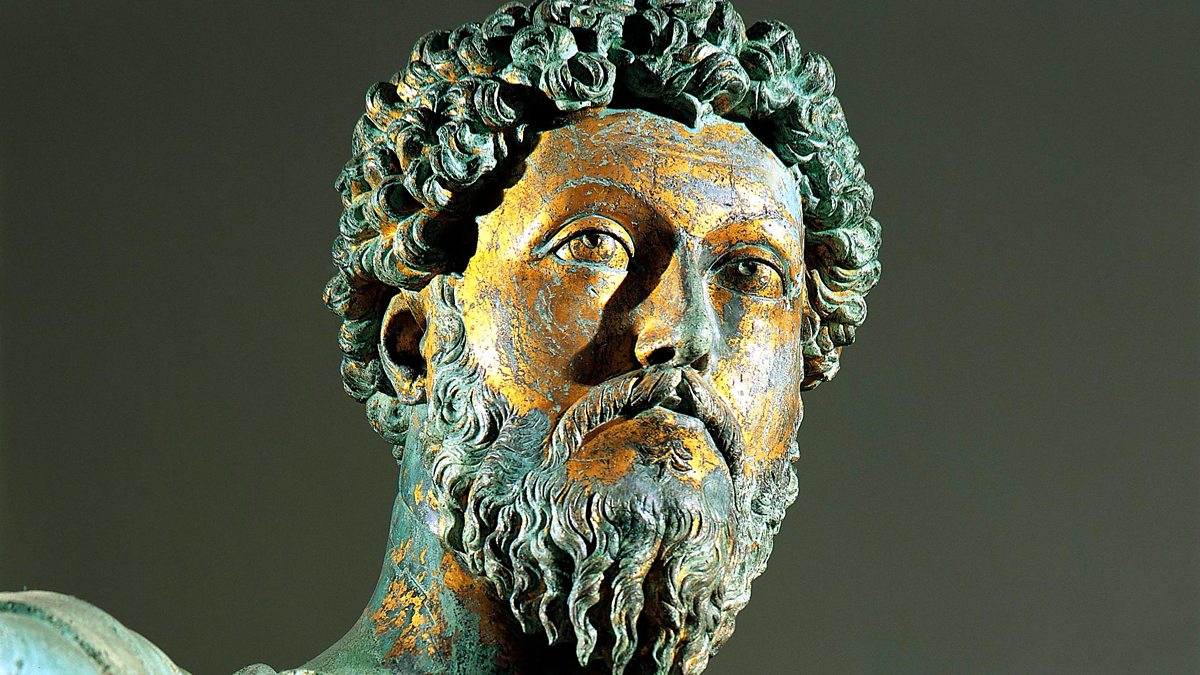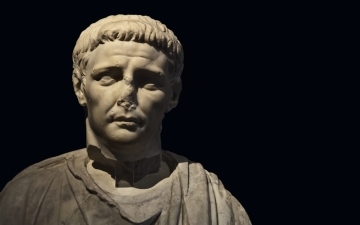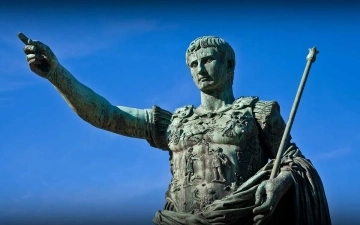Marcus Aurelius: Philosophy and Leadership in the Midst of Turmoil

In the annals of Roman history, the name Marcus Aurelius stands as a symbol of wisdom, Stoic philosophy, and leadership during times of great adversity. His reign as Emperor from 161 to 180 CE coincided with challenging periods for the Roman Empire, including external threats and internal strife. In this article, we delve into the life and reign of Marcus Aurelius, exploring how his philosophical beliefs shaped his leadership during tumultuous times.
Early Life and Education
Marcus Aurelius Antoninus was born in 121 CE into a prominent Roman family. From a young age, he received a comprehensive education in literature, philosophy, and rhetoric. His early studies in Stoicism, a school of philosophy that emphasizes virtue, self-control, and rationality, would profoundly influence his life and reign.
The Five Good Emperors
Marcus Aurelius is often counted among the "Five Good Emperors," a period of relative stability and prosperity in the Roman Empire. His accession to the throne in 161 CE was marked by a shared rule with Lucius Verus. However, his co-emperor's early death placed the full burden of leadership on Marcus Aurelius' shoulders.
Stoicism and Leadership
Marcus Aurelius' reign was marked by his commitment to Stoic philosophy, which provided him with a moral and ethical framework for leadership. He believed in the importance of duty and virtue, emphasizing the well-being of his subjects above personal gain.
During his rule, the Roman Empire faced numerous challenges, including the Parthian War, the Antonine Plague, and invasions by Germanic tribes. Marcus Aurelius maintained a Stoic composure, often recording his thoughts in a series of personal writings known as the "Meditations." These writings provide insights into his philosophical outlook and his commitment to rational decision-making in the face of adversity.
Philosophy and Personal Ethics
In the "Meditations," Marcus Aurelius reflects on Stoic principles such as self-discipline, resilience, and the importance of distinguishing between what can be controlled and what cannot. He emphasizes the impermanence of life and the value of living in accordance with reason and virtue.
Legacy and Influence
Marcus Aurelius died in 180 CE, leaving behind a legacy as one of Rome's most respected emperors. His Stoic philosophy and ethical leadership continue to inspire leaders, philosophers, and individuals seeking guidance in facing life's challenges.
His writings in the "Meditations" have been translated and studied for centuries, offering timeless wisdom on topics ranging from personal ethics to leadership principles. Today, Marcus Aurelius is celebrated not only as a wise emperor but also as a philosopher-king whose enduring influence extends far beyond the boundaries of the Roman Empire.
Marcus Aurelius' reign serves as a testament to the power of philosophy in guiding leadership and personal conduct. His steadfast commitment to Stoic principles in the midst of turmoil showcases the enduring relevance of ancient wisdom in navigating the complexities of life and leadership.
Related Posts
Living Smarter in 2025: A Holistic Guide to Thriving in the Modern World
As we advance further into the digital age, life in 2025 is defined by a seamless fusion of technology, tradition, and personal growth. From AI-powered finance to deeply rooted spiritual customs, from smart home living to innovative educational tools, people today are reimagining how to live, work, worship, and grow. This...
Read MoreDrive the Magic: Why Renting a Car in Miami is the Key to Unlocking the Best of the City
Miami isn’t just a city—it’s a vibe. With its sun-drenched beaches, pulsing nightlife, exotic cuisine, and vibrant cultural districts, it’s a place that begs to be explored. But here’s the truth: Miami wasn’t made to be experienced from the back seat of a cab or behind the window of a...
Read MoreThe Evolution of Customer Expectations In A Digital-First World
Introduction: When Everything Changed for Travelers Think back to your last vacation ten years ago. Going off-grid was actually part of the appeal, wasn't it? Fast forward to today, and that mindset seems downright prehistoric. Modern travelers want their phones working before the plane wheels touch down, and they're definitely not...
Read MoreMarcus Aurelius: Philosophy and Leadership in the Midst of Turmoil
In the annals of Roman history, the name Marcus Aurelius stands as a symbol of wisdom, Stoic philosophy, and leadership during times of great adversity. His reign as Emperor from 161 to 180 CE coincided with challenging periods for the Roman Empire, including external threats and internal strife. In this...
Read MoreClaudius: The Unexpected Emperor and His Surprising Achievements
In the annals of Roman history, the name Claudius stands out as a remarkable story of an unexpected emperor who defied the odds and left behind a legacy of significant achievements. Often underestimated due to physical disabilities, Claudius rose to power and proved to be a capable and innovative ruler....
Read MoreThe Rise and Fall of Julius Caesar: A Tale of Ambition and Betrayal
Julius Caesar, a name that echoes through the corridors of history as one of ancient Rome's most prominent and controversial figures. His life, marked by ambition, military genius, and ultimate betrayal, is a tale that continues to captivate and intrigue. The Ascent of Ambition Julius Caesar was born in 100 BCE into...
Read More






















